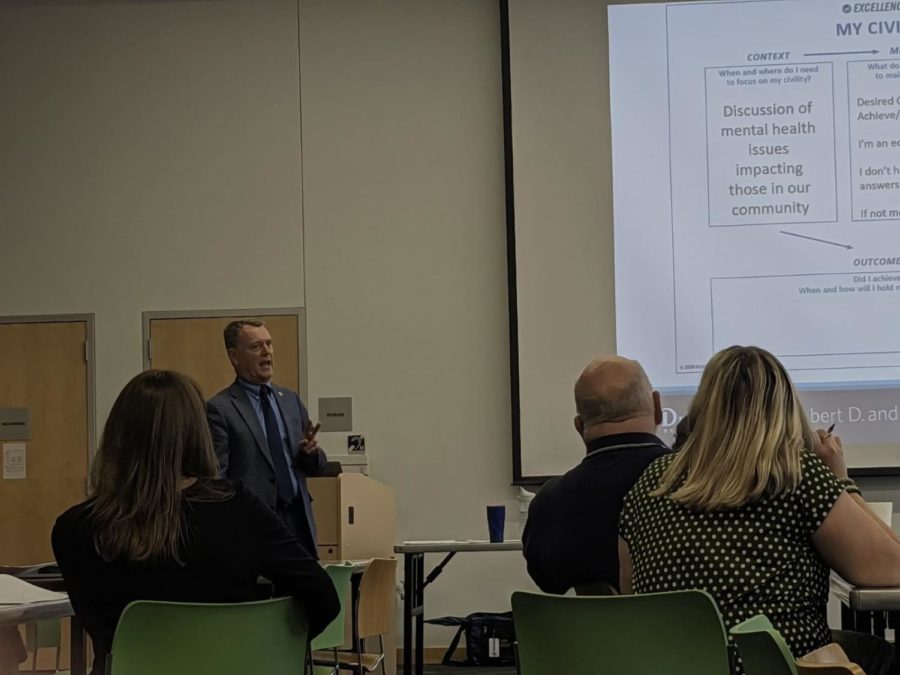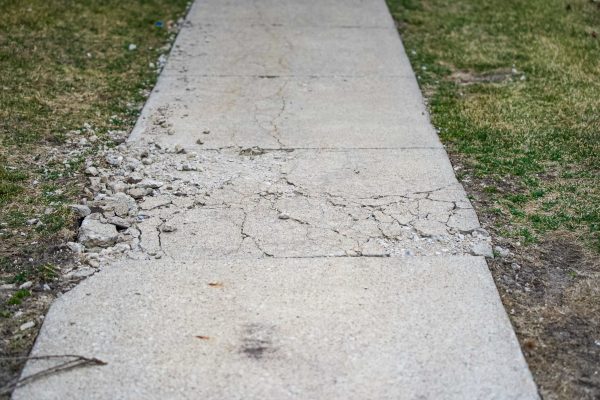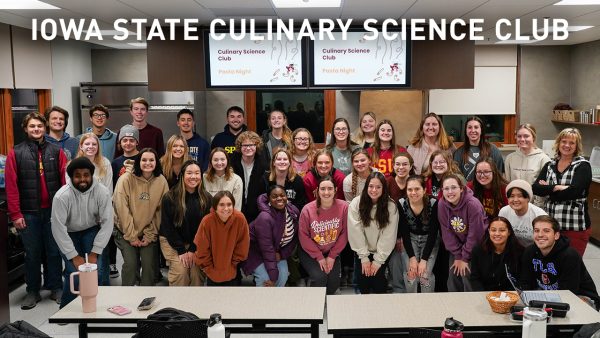Former Iowa Legislator speaks on nurturing civility in conversations
Former Iowa Legislator Scott Raecker discussing mental health with community leaders at the final Community Conversations.
Former Iowa Legislator Scott Raecker spoke to community leaders about the importance of civility in conversations at the final community conversation of the series on Tuesday at the Ames Public Library.
Raecker, who is also the executive director of The Robert D. & Billie Ray Center at Drake University, headlined the event which explored the importance of encouraging civil discourse when addressing the challenges of mental health issues we face.
Mayor John Haila opened the event by saying that this would be the final community conversation event and that city staff would evaluate how impactful these meetings have been and how helpful it would be to continue them.
In an interview with the Daily, Haila commented on how helpful this presentation would be no matter what issues are being discussed.
“[This presentation] applies to all things in life and it’s so needed today with the decline in how we talk to each other,” Haila said.
Raecker took the floor after Halia and discussed the importance of civil discussion when having conversations about mental health.
“I think having conversations on a community wide basis about what do we do about mental health, those are not easy conversations to have, those can be difficult conversations,” Raecker said. “So it takes a level of civility.”
Raecker emphasized how important civil discussion is in today’s polarized political landscape.
“People are viewing people, not just the party in a negative way, but the people […] That’s a challenge because there’s a difference between partisan and nonpartisan and it affects governance,” Raecker said.
During the presentation, Ward 2 Rep. Tim Gartin also voiced his concerns for the culture of civility in today’s world.
“Maybe I’m alone on this, but I am fatigued with the polarized conversations in this country […] I would not hold our legislator up as a model of civility,” Gartin said.
Raecker said that even if people are disappointed with their representative, that representative is still voted in by the community and change would have to start on an individual level.
“If someone has grown up watching shouting matches on TV of the loudest person who talks over the other person is the person that is going to be right at the end of the show […] and they get to the capitol and that’s how they’re acting they don’t tend to be as effective long term,” Raecker said. “I share your concerns, but I am hopeful and I am optimistic.”
This optimism comes from one of the lessons Raecker brought up at the presentation, which was that communities are not victims of a polarized culture, they just feed into it, and with the right communication tools they can build a culture of civility in conversations instead.
“We shape the culture, the culture shapes character,” Raecker said.
Raecker showcased multiple tools and thought exercises that could help people understand different views and maintain a civil discussion despite those differences.
One tool that Raecker showcased was the Care-Frontation Fundamentals. According to a handout given at the event the fundamentals are as follows:
Attack the problem, not the person – “Care more to get it right than to be right”
When in doubt, do it – “Speak up sooner and more consistently”
Use “I”-statements and avoid “You”-statements
Seek win-win – “I want…, you want…, we could…”
Own mistakes and missteps
Information about the Care-Frontation Fundamentals and other discussion or self-improvement lessons can be purchased on The Robert D. And Billie Ray Center website.
Live streams of all the past community conversations are available on the Ames Television YouTube channel.
Your donation will support the student journalists of the Iowa State Daily. Your contribution will allow us to purchase equipment, send our student journalists to conferences and off-set their cost of living so they can continue to do best-in-the-nation work at the Iowa State Daily.
















